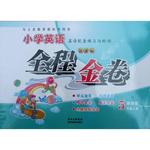题目内容
Rachel Carson, born in rural Pennsylvania in 1907, had a great impact on the environment. Carson earned a master’s degree in zoology in 1932. It was as a writer and not as a research scientist, however, that she made her mark, sharing her view that human beings are just one element in a larger natural order.
In the articles on natural history Carson wrote for various publications, she expressed dry facts in poetic and persuasive language. She wrote five books. Two of them, The Sea Around Us and The Edge of the Sea, have been called “biographies of the ocean.”
Carson also made the world aware of how scientific discoveries can harm as well as help living things. In her best-selling book Silent Spring, Carson challenged the profligate use of chemical pesticides by large agricultural and government organizations. She was the first to detail how the pesticide DDT had entered the food chain and damaged populations of bald eagles, falcons, and brown pelicans by causing the shells of their eggs to become so thin that they could not withstand the weight of the parent bird.
Carson died of cancer in 1964. Today, the Rachel Carson Council collects and disseminates (散播) information on pesticide-related issues. In 1970, the Rachel Carson Wildlife Refuge, a large area of salt marsh and freshwater habitat in Maine, was dedicated to her memory.
1.Which of the following words is closest to the meaning of the underlined word in paragraph 3 ?
A. excessive B. inadequate C. authoritative D. efficient
2.Which of the following inferences is correct ?
A. Carson wrote books that the average person could understand.
B. Dangerous properties of new chemical products may be immediately apparent.
C. If not for Carson, no one would have learned about the dangers of DDT.
D. In 1970, large quantities of salt and freshwater were dedicated to Carson’s memory by the Rachel Carson Wildlife Refuge
3.Which of the statements below expresses the main idea of the passage ?
A. Writers have played an important role in the battle against pollution.
B. The scientist Rachel Carson taught people about environmental issues through her writing.
C. Carson’s book Silent Spring changed the way some pesticides were used.
D. Many of Carson’s books were about pesticide-related issues.
1.A
2.A
3.B
【解析】
试题分析:本文介绍了美国海洋生物学家雷切尔·卡逊,尽管她是一名科学家,但她是以她的作品《寂静的春天》引发了美国以至于全世界的环境保护事业。她掌握了许多由于杀虫剂、除草剂的过量使用,造成野生生物大量死亡的证据,但她以更文学化的、更生动的方式写出来,使这本书成了美国和全世界最畅销的书。
1.A词意猜测题。A极度的, 过度的;B不充足的;C权威的;D有效率的。根据下文She was the first to detail how the pesticide DDT had entered the food chain and damaged populations of bald eagles可知杀虫剂的使用进入了食物链,对一些动物造成了危害,由情理可知此处是指杀虫剂的过度使用,所以A选项正确。
2.A推理判断题。根据文中she expressed dry facts in poetic and persuasive language.她用诗一般动听的语言解释一些枯燥的事实,和下文In her best-selling book Silent Spring,可知她的书很畅销,由此推断她书中的语言应该是人们都能读懂的,所以A选项内容正确。
3.B主旨大意题。文章开头介绍以作家而闻名的科学家切尔·卡逊,然后介绍她的贡献,即通过写作引起了人们对环境的关注,由此可知B选项内容正确。
考点:考查人物类短文阅读。

 全程金卷系列答案
全程金卷系列答案 快乐5加2金卷系列答案
快乐5加2金卷系列答案
| |||||||||||||||||||||||||||||||||||||||||||||